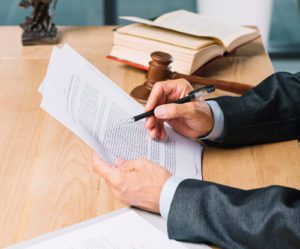 On May 13, 2019, the New Jersey Supreme Court decided the Monmouth County case of State v. Nathan Shaw. The principal issues involved the applications of the inevitable discover and independent source doctrines.
On May 13, 2019, the New Jersey Supreme Court decided the Monmouth County case of State v. Nathan Shaw. The principal issues involved the applications of the inevitable discover and independent source doctrines.
Justice Timpone wrote for a unanimous Court and held as follows: In this case, the Court considers whether evidence found in a motel room and vehicle and defendant Nathan Shaw’s statement to police should have been suppressed. Jasmine Hanson was staying at the Crystal Inn motel in Neptune City. She called the front desk to complain she had been bitten by bed bugs. The motel owner inspected Hanson’s room using his pass key. He saw a plastic bag containing what he suspected were narcotics and called the police. Officer Jason Rademacher had the motel owner lead him to Hanson’s room where, again using his pass key, the motel owner unlocked the door for the officer to enter. Inside, Rademacher saw what appeared to be drugs, as well as a measuring cup and scale. A criminal history check on Hanson revealed an outstanding traffic warrant and a recently issued traffic summons on a 2012 black Chevrolet Tahoe, and its plate number.
Rademacher transported the evidence to the station and returned in an unmarked vehicle to wait for Hanson’s arrival. Shortly thereafter, the black Tahoe pulled into a parking space. The front passenger was Keon Bolden, Hanson was in the driver’s seat, and in the back seat were Shakera Dickerson and Shaw. Rademacher arrested Hanson. The officer asked to search the Tahoe; Hanson refused consent. A drug-detection canine was brought to perform an exterior sniff of the vehicle. The officers conducted warrant checks on the remaining passengers. Only Dickerson’s came back positive. She was arrested and placed in a second patrol car. Shaw and Bolden were patted down and seated in separate patrol cars, uncuffed. Hanson again refused to consent to a search of the vehicle.
The way that these drugs were seized by the police is fundamentally unfair to the defendant. Logic dictates that she did not reasonably expect that the hotel owner would enter her room after she left or she would have put her drugs away. The owner likely watched her leave, then entered without permission, then saw a way to have her evicted from the room after taking her money by calling the police about drugs as opposed to remedying the bed bug issue.
